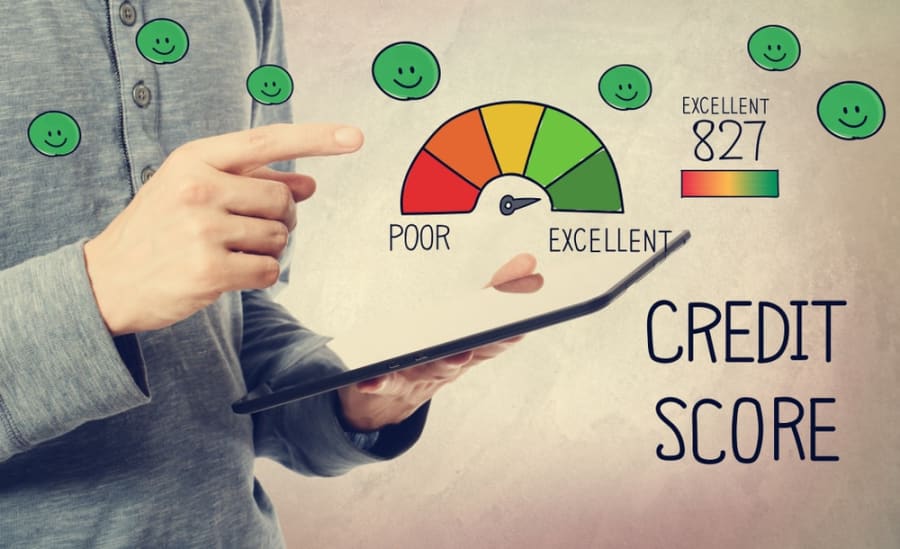
We have often stressed on the need to have a high credit score, since this would allow you to get your loans sanctioned, and that too, at the best rates. What usually happens that in their effort to establish a strong credit, people create credit cards and increase their credit limit, but eventually ending up being swamped by expenses that inevitably come along the way. So it is quite evident that establishing credit is akin to having a slice of cake, but reaching a good credit score range and then maintaining it no less than fighting a war in itself. In this struggle, if you think that you need to know how to keep up with the fight for maintaining your credit score, then here are a few commonplace habits that might definitely help you:
- Check Credit Scores and Credit Reports Regularly: A very important have, it never hurts to be diligent and mindful of your financial affairs, and when it comes to keeping a tab on your credit score, this practice is filled to the brim with benefits for you. The thing to keep in mind is that credit scores is determined through a three-digit point system, the lowest and uppermost values of this scale are determined at 300 and 900, respectively. A credit score of 300 or below would debar you from getting any loan, to begin with. A credit score of 900 is the ideal score, where banks and financial institution would be more than happy to sanction your loan. Generally, a credit score of 800 and above is recommended for you to get your loans without any hassle.It’s therefore important to keep an update on your credit score, to understand whether you are doing the right thing or not. Discipline would be rewarded with an increased credit score, while frivolity would result in a lowered credit score. Therefore, checking your credit report would not only help you to keep a tab on your credit but to also various errors of omission and commission to prevent your credit score from going down.
- Pay Your Repayments in Full and in Time: Your credit score is influenced by a lot of your actions, and one of them inevitable components determining your credit score is your ability to repay dues and debts in full, and in time. In fact, this is the cornerstone of your credit-worthiness, as banks and financial institutions lend you loans on the explicit understanding that you will repay the loaned within a reasonable time period. If the repayment scheme is EMI based, don’t forget to pay your monthly instalments. Timely repayments go a long way in embellishing the contents of your credit history, and consequently raise your credit worthiness and your credit score. If you have a habit of forgetting the dates on which to pay your interests or instalments, you can either set up an automatic reminder or set up an automatic system to transfer money from your savings to your credit account.
- Apply for New Credit Only When You Need it: Some people have a habit of indiscriminately applying for credit cards, rationalizing this approach will increase their credit score. While not an incorrect step in itself, this brings a lot of complications into play. If you take credit or apply for loans with a reasonably short period of time, your credit score would be adversely affected. This is because taking too much credit and loans within a short time span involves an accumulation of debt that needs to be paid, and whenever you apply for a new credit or loan, creditors tend to ask for information on your credit profile. Too many loans and credits would mean you’ll might get a loan but the rate of interest would be, well, high.
- Don’t Overuse Available Credit: A good and healthy credit score at a single glance indicates that the concerned person has skilfully managed his credit and finances in the past. In order to assess precisely this deft management of credit, banks and various financial institutions would resort to a formulaic method called the credit utilization ratio, also known as the debt-to-limit ratio. It’s actually the ration between the balance in your credit card and the available credit limit. It’s essential to strike a balance between regularly using your credit card and staying away from overflowing expenses. People with good credit scores tend to have their debt-to-limit ratios to be fixed at 30%. Keeping this ration under control is key to both to avoid debts and increasing your credit score.
- Maintaining Strong and Stable Credit Histories: A long history of good credit management is a huge blessing for your credit score. Those who realise this simple hack don’t rush to close their old credit accounts, but preserve it until it is absolutely necessary and imperative to do so. A long and stable credit gives the sign that the applicant for the loan can be trusted with repaying the entire loaned amount within the requisite time period. If you’re embarking on this journey, don’t forget to use your credit card regularly – at least once a month – in order to build up a good credit history. As your credit report ages, your credit scores will improve.
With Chqbook.com you can apply for a credit card yourself. Download the app today!
